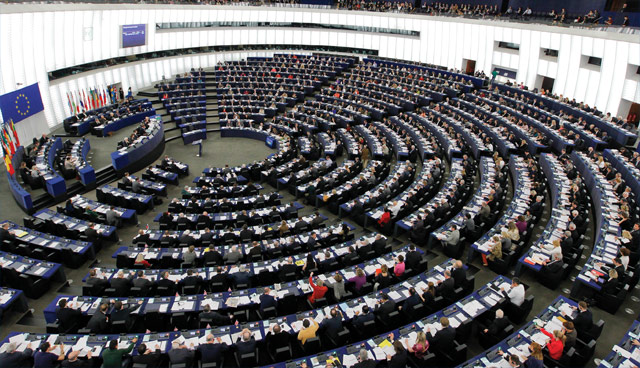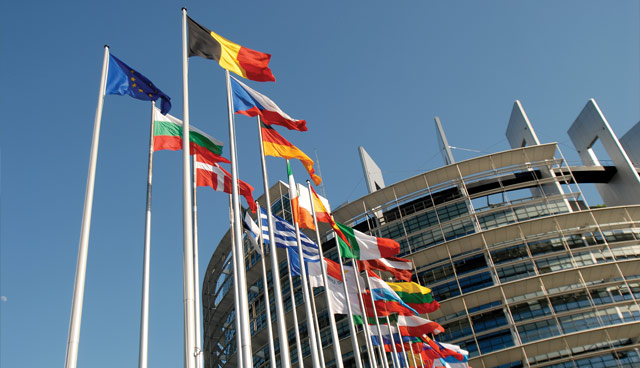Two MEPs to be put on hold

Two candidates deemed successfully elected in Ireland’s recent European election will now assume the position of ‘reserves’ until the UK concludes its exit from the EU.
The announcement by the UK Government that its inability to secure a withdrawal agreement with the European Union would mean its reluctant participation in the European Elections on 23 May has created an unwelcome situation in Ireland.
In 2018, it was announced that the UK’s allocation of seats on the European Union would be distributed to other member states, resulting in a rise of Ireland’s representation from 11 to 13. However, included in the EU legislation was the caveat that if Britain delayed its exit, extra MEPs would be restricted from taking up their seats until the UK officially left.
A total of 27 seats were distributed across EU member states with 46 left vacant.
The UK was due to leave the EU on 29 March, but as no deal was agreed by Parliament, the EU extended the deadline to 31 October. While the UK could have potentially left before the 23 May, its failure to do so means that it was legally obliged to contest the elections and to send MEPs to Brussels.
While the UK has declared its intention to make any delay in its exit “as short as possible”, even if the UK secures a deal prior to new MEPs starting their session in July, UK MEPs would still have to have to take up seats in Brussels for at least one month.
The European Parliament Elections (Amendment) Act 2019 amended Irish law relating to elections to the European Parliament and the provisions of the Act provided for a new constituency configuration based on electing 13 members to the European Parliament (i.e. in accordance with the Report on European Parliament Constituencies 2018) with contingency provisions in the event of a delay in the withdrawal of the United Kingdom from the European Union.
The Act sets out that in such a scenario, the two members (of the 13 elected in Ireland) who would not take up their seats immediately in the European Parliament would be the last person elected in the constituency of South and the last person elected in the constituency of Dublin, the two constituencies which were allocated the additional seats under the 2018 constituency review.
In addition, the rules for counting votes have been amended to ensure clarity as to which candidate is elected in each of the two constituencies and returning officers have been empowered to publicly announce the order of election, including the last candidate deemed to be elected in each of those constituencies, ensuring the last candidate deemed to be elected in each of the constituencies of Dublin and South is publicly clear and unambiguous.
However, a spokesperson for the European Parliament has confirmed that the two candidates will not be deemed as MEPs as the European Council decision from June 2018 makes it clear that the UKs withdrawal from the European Union must become legally effective before the additional seats arising from their withdrawal are taken up in the Parliament. The decision also makes it clear that these additional seats (27 in total across Europe) shall be taken up at the same time.
The geographical change that Laois and Offaly move into South, made as part of the reconfiguration to accommodate 13 MEPs, will remain in place.
A spokesperson for the European Parliament indicated that the issue of pay for those candidates unable to take up their seats immediately would be decided by the new European Commission when it sits.
A spokesperson for the Department of Housing, Planning and Local Government said that dates for taking up seats in the European Parliament and the terms and conditions of being a member are ultimately a matter for the new European Parliament.

If an Oireachtas member is elected in the last seat in Dublin or the South, and they cannot take up their seat on 2 July, then they will continue as a member of the Oireachtas until the date for the taking up of the seats has been determined by the European Parliament.
However, he confirmed that the Electoral (Amendment) Act 2019 includes a provision whereby if an Oireachtas member is elected in the last seat in Dublin or the South, and they cannot take up their seat on 2 July, then they will continue as a member of the Oireachtas until the date for the taking up of the seats has been determined by the European Parliament.
This is particularly relevant given that a number of TDs are contesting for elections in the two constituencies.
On whether this would have an impact at local level, with the local elections taking place on the dame date as the European elections, he added: “There is nothing to prevent an eligible person standing as a candidate in both the local and European elections. However, it should be noted that membership of a local authority is incompatible with membership of the European Parliament; accordingly, under section 13 of the Local Government Act 2001 (as amended), an existing member of the European Parliament is disqualified from being elected to, or from being a member of, a local authority.”





